ADSactly Culture -: Why Do Writers Use Pseudonyms?
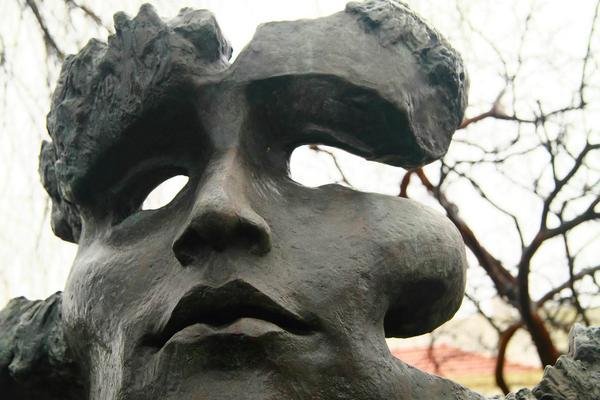
WHY DO WRITERS USE PSEUDONYMS?

The idea of using false names to sign your work is not a recent phenomenon. For different reasons, there have always been people who prefer to keep a halo of mystery behind the figure of the author. In the history of literature there has been many writers who preferred to write under pseudonyms. Some did so in order to remain anonymous and not to compromise the family name, others in order to be published and some changed their names because they were not striking or too complex to be pronounced.
But what is a pseudonym? According to the Dictionary of the Royal Academy a Pseudonym is a false name used by a writer to hide his own name. In short, the writer uses an alias to replace his real name and keep his identity safe, remain anonymous. In the dictionary we do not see the reasons why a person, in this case an artist, must resort to the invention of a name, although as we said in the previous paragraph, there are many reasons why a person, when writing or becoming known, decides to replace his name with another.
As far as we have been able to investigate, many women chose to sign their works with male names because they knew that publishers could have reservations about female writing; also, there are those who, as a precaution, whether to maintain a position within society or to have a job other than writing, published under false names. Let's review some of the most famous writers who were forced or chose to use pseudonyms and their reasons for doing so:
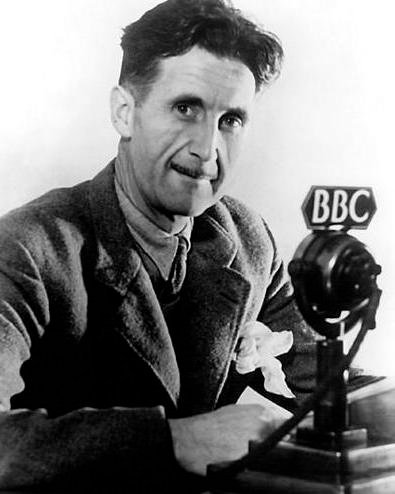
Let's start this list with one of the most famous writers of all time: George Orwell, writer of the famous Farm Rebellion and 1984. Orwell's name was Eric Arthur Blair. Blair took the pseudonym because he did not want to offend his family with part of the story he told in his first great novel, Down and Out in Paris and London, in which he narrates having lived in misery and having done undesirable work. Moved by his affection, the pseudonym he chooses comes from his appreciation of the English countryside. Hence George, who is the patron saint of England, and Orwell, of the Orwell River, in Suffolk, which is an important place for many Englishmen. It is read in some texts that Eric A. Blair also thought that if his surname began with the letter O, his books would have more visibility and less competition on the shelves.
Another great writer who used pseudonyms was Lewis Carroll, author of the famous Alice in Wonderland, actually called Charles Lutwidge Dodgson. This famous writer also had to replace his real name with another. In the case of this writer he wanted to use a pseudonym to differentiate literature from another of his passions: mathematics. As is well known, Charles Lutwidge Dodgson wrote many articles and books on mathematics with his real name and did not want his recreational or literary writing to question his work as a man of science. Perhaps driven by his mathematical and complex spirit, his pseudonym created him from the Latinization of his first name and his mother's surname. In that sense, Lutwidge was Latinized as Ludovicus, and Charles as Carolus. The result was Ludovicus Carolus. This name returned him to the English language and gave origin to Lewis Carroll. A complex way to make a pseudonym, but interesting and unique.
On the other hand, we have Samuel Langhorne Clemens, better known as Mark Twain. This writer, famous for his prestigious novels The Adventures of Tom Sawyer and its sequel The Adventures of Huckleberry Finn, acquired that pseudonym because, at one point, he must have served as a river pilot and became familiar with the expression "mark twain", which means "mark two", in reference to the two fathoms of depth (3.6 meters) that there must be for the boat to sail. For his job, Samuel had to use this expression daily and at all times, so he earned that nickname. In this opportunity we see how the pseudonym was born as a fortuitous fact in writing.
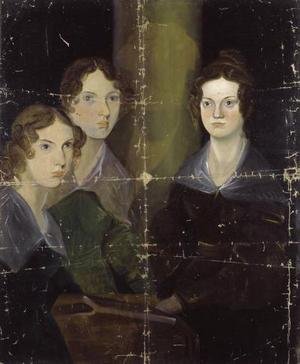
Among the women who had to change their name to a male one, the case of the Brontë sisters is well known. Charlotte, Anne and Emily Brontë, the latter author of the famous novel Wuthering Heights, had to use male pseudonyms in order to publish their works, as very few 19th century women were recognized for their literary works.
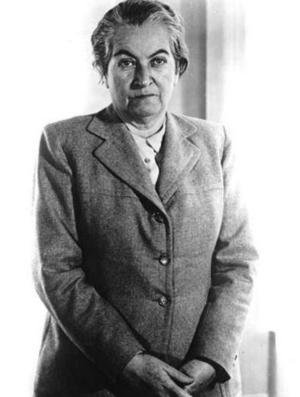
Different is the case of Lucila Godoy Alcayaga, better known as Gabriela Mistral, one of the greatest Chilean poets of all time and the only Latin American woman poet to win the Nobel Prize for Literature. The writer had the opportunity to participate in a contest, Juegos Florales, in which she won a prize thanks to the poem Sonetos de la muerte (Sonnets of Death). Her work for the contest was presented under the pseudonym Gabriela Mistral, in homage to the Italian poet Gabriele D'Annunzio and the French writer Frédéric Mistral, and from that moment on she became known by that name.
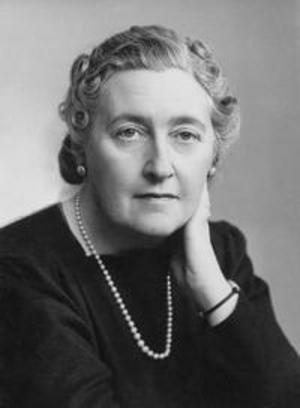
Another woman who chose to write under a pseudonym was the great writer Agatha Christie. As we all know, Agatha Christie is considered to be the best writer of crime novels. So she felt compelled to use a pseudonym, Mary Westmacott, when she had to write stories away from the subject she was known for, in this case when she wanted to write romantic stories or roses.
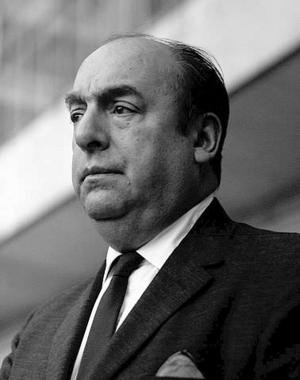
Returning to Latin America and Chile, we find another Nobel Prize for Literature, the extraordinary poet Pablo Neruda, whose real name was Eliecer Neftalí Reyes Basoalto. It is said that the times the poet was asked why he had decided to write under a pseudonym, he answered imprecisely, but from what could be understood, he had changed it to a pseudonym due to the antipathy inspired by his real name and the need to hide his literary activities and inclinations from his father.
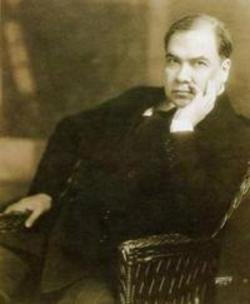
Continuing with Latin American letters is the case of Rubén Darío, a Nicaraguan poet considered the father of modernism, who, instead of using a pseudonym, merged his name with that of his grandfather. His real name was Felix Rubén García Sarmiento and his great-great-grandfather was called Darío, so the poet saw a good way to make a literary name by uniting his middle name with that of his grandfather.
In recent years, the case of JK Rowling, the woman writer who became famous for the Harry Potter saga, has come to light. She has stated that she has felt the need to write and publish a novel without the pressure of having written a famous work. That is why she wrote The Call of the Cuckoo, under the pseudonym Robert Galbraith. This detective novel, which had an excellent critique, did not have the expected sales, very different from the other novels she has written, which although they have had strong critiques, the number of copies sold is counted in thousands. So JK Rowling herself has said that the sale of books is not based on the quality of the stories, but on the fame of their writers. If she says so, it won't be a lie.

http://dle.rae.es/?id=XkThOnX
https://es.wikipedia.org/wiki/George_Orwell
https://es.wikipedia.org/wiki/Lewis_Carroll
https://es.wikipedia.org/wiki/Agatha_Christie
https://narrativabreve.com/2015/03/origen-seudonimo-pablo-neruda.html
https://vianica.com/sp/go/specials/10-ruben-dario.html
https://www.buscabiografias.com/biografia/verDetalle/1592/Gabriela%20Mistral
https://www.palibrio.com/Seudonimo_Si_o_no.aspx
Authored by @nancybriti
Click on the coin to join our Discord Chat

Witness proposal is here:
Go To Steem Witness Page
In the bottom of the page type: adsactly-witness and press vote.

Use small letters and no "@" sign. Or, click here to vote directly!
Thank you!
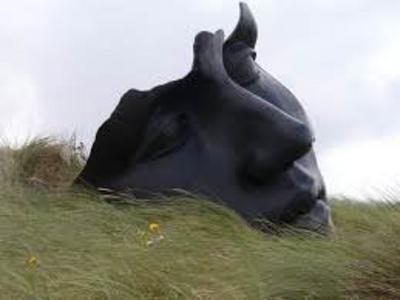
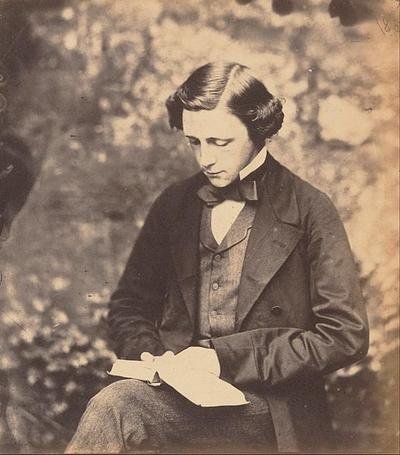
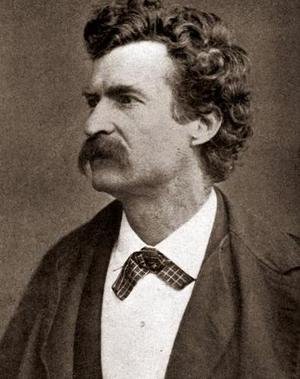
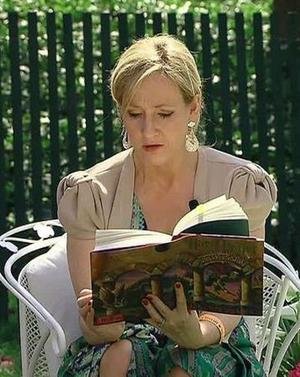
My steemit name just popped up when I started in 2016. Now I think it's perfect for what I do. Cartoons and drawings that look like reality :) but I also have another account with my real name, but I haven't started posting yet. I have bigger plans for that one and I want it to be perfect. Great post!
That's one way to select a pseudonym: by the trade or skill you have! Surely the account with your real name will be with other content and more private. Thank you for your comment, @realitycartoon. Greetings;)
The pseudonym is a good way to transgress the social order by saving all parties. It allows to disobey without breaking, to hide without running away, to redouble without giving up. Because pseudonymy marks the limits of ultimate freedom. That of being another while remaining oneself. It corresponds to a change of person without depersonalization and in that sense it is the opposite of alienation. "
However, the use of a pseudonym is rarely innocuous. Often he reveals deep fractures in the filiation of the author.
Interesting reflection, @kouba01. I think there is a lot of concealment, of being able to unfold into another who is you, but who gives you the possibility of being different. There is, obviously, a transgression and the search for a freedom that gives you the mask. In fact, I myself can believe and create a difference between one and the other, between what I really am and what I have invented, but sometimes that line blurs. I value your comment! Greetings ;)
A few years ago I sold a handfull of trashy romance novels. I took a female pseudonym for that because they sell better. I have no shame, but you never know when having your name attached to werewolf smut might come back to haunt you.
Your comment is very interesting, @themadgoat. It fills me with curiosity to know why you signed with feminine and not masculine pseudonym some romantic novels of bad quality and why you were "sorry" to sign them with your real name if after all you are the creator. I think that in the end you were ashamed of your texts. Greetings and thanks for your comment.
Mostly it was simple economics. Female writers sell better than males in that genre. But I was also concerned about if I ever applied for a job and they googled my name. A conservative employer might not have a sense of humor about stuff like that.
Posted using Partiko iOS
I have no time for these writers who cower under assumed names!!
- meesterboom
hahaha. Me neither, @meesterboom!! Me neither ;)
I use a pseudonym for my own writing as a precaution, mostly. I don't really have a reason that I can't have my real name associated with my work, but I do plan on writing some edgier content in my novels that I may not want connected to me in real life. I've seen attempts to ruin people's lives over innocuous comments, so I want to avoid that admittedly slight possibility altogether if I can, so I can write honestly without fear of reprisal.
It's also quite easy to do a reveal and give out your real name, but basically impossible to undo that loss of privacy.
According to you, @rhethypo. In this time when there is so much private information going public, it's not too bad that we can keep some things anonymous as a simple precaution. Greetings
What's up, buddy? I hope you and the whole @adsactly community are okay.
We can define the pseudonym as the Name that a person uses instead of his real name, especially an artist, a writer. We could say that it looks like a nickname, in steemit I still don't have an alternate account, however I have plans to start with my youtube channel, since I'm good with humor and that, and in this case I won't use a nickname, but I'll use my real name, since it's easy and uncommon, so I'll use steemit as a platform to also make my viral videos and promote myself through the discord chat, I hope to have everyone's support!
Very good post friend! Greetings from
Many successes with your videos, @linooo36
I think its the best way people can express themselves , literature evolves.
Maybe it's not the best way, but it is a valid way to do it. Greetings
I think I will definitely have to use a pseudonym when I do begin publishing.
I had no idea Mark Twain was a pseudonym.
I think you don't need it because you already have it, @impacientoptim!;)
Very interesting your article, in my country there was a wonderful writer: Maria Teresa de La Parra, her nickname was "Fru Fru" (I don´t know it origin) :)
Hello, @soanna. I am also Venezuelan and the real name of Teresa de la Parra, as it is known, is Ana Teresa de la Parra. The pseudonym Fru fru used it in the first stories she made. Remember that this Venezuelan writer lived almost all her life in France and this expression was taken from the French frou-frou, which means the sound of fabrics. Greetings
Excelente información, gracias por ilustrarme!!!, en honor a nuestra nacionalidad deberías mencionarla en un próximo post! saludos :)
Interesting post i read most of the author you mentioned and i do not figure out they used pseudonymus...
Yes, many writers, as well as artists, changed their real names and were forever known by their pseudonyms or aliases. It may even be that we never discover the real names of some authors because the documents were lost or they simply made false documents where they signed with their new names. Thank you for commenting, @noemilunastorta